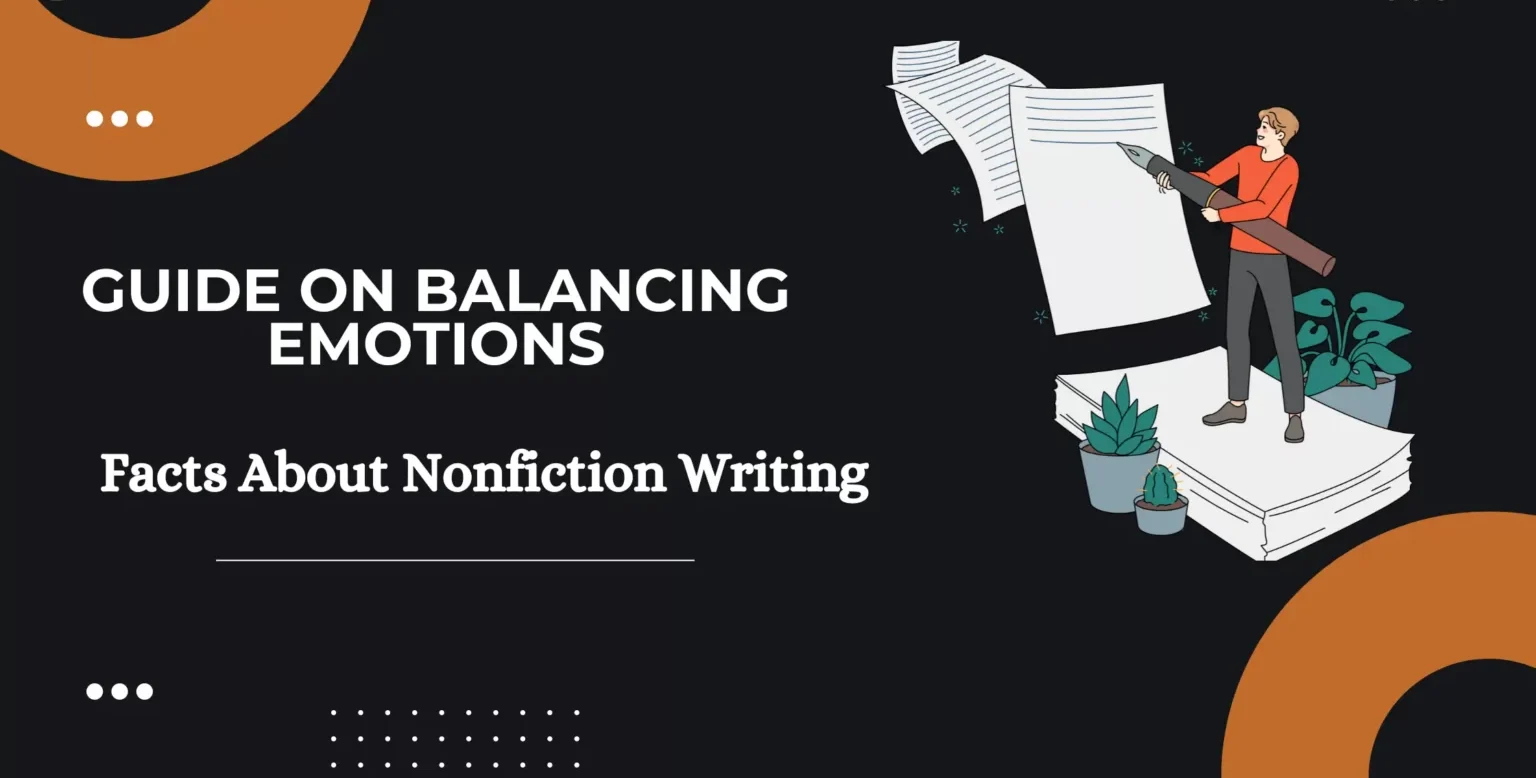- Blog
Facts about Nonfiction-A Guide on Balancing Emotions

In the enchanting realm of nonfiction, where truth and reality interlace to create powerful narratives, lies an artful dance between emotions and facts.
Welcome to a guide that transcends the boundaries of conventional storytelling, where we embark on a journey to discover the delicate equilibrium between heart-stirring emotions and unwavering facts.
In this blog, we shall discuss the secrets of weaving compelling tales grounded in truth, debunking the notion that nonfiction must be an emotionless, monotonous recitation of facts.
Brace yourself for a captivating odyssey that will enlighten your mind, touch your heart, and leave you with a newfound appreciation for the mesmerizing tapestry of facts about nonfiction.
So, buckle up your curiosity and imagination, for the adventure begins now!
Facts About Nonfiction - Aiming to Create Balanced Write-Up
1- Know your purpose
Being human, we don’t do anything without reason, even though we all live our lives for a reason. This might be an obvious fact about nonfiction that every nonfiction piece has a specific purpose, whether it’s to inform, educate, persuade, or entertain.
Identifying your purpose is fundamental in creating a balanced write-up. It guides the tone, style, and structure of your work.
However, these questions might help you to know and realize the purpose of your write-up. Here we go!
What is the main point you want to convey?
What is the value you want to offer?
How do you want to influence or inspire your audience?
Let’s suppose your book is about environmental change; what could be the purpose?
This might be to inform readers about climate change. To make it more countable, you must present scientifically sound facts and evidence while avoiding sensationalism or bias.
2- Choose your narrative style
This is one of the most dependable facts about nonfiction writing. – every write-up has its own unique voice- aiming to attract and resonate with its targeted audience.
Nonfiction allows for various narrative styles suited to different purposes and audiences.
Your writing style can be informative, journalistic, analytical, argumentative, narrative-driven, and storytelling-oriented. All in all, weaving a countable message for the readers.
For instance, in a personal essay, you might adopt a reflective and introspective narrative style, sharing your experiences and insights, while in a historical account, a more formal and objective approach might be appropriate.
3- Use stories and examples
Effective nonfiction often employs stories and examples to bring facts and ideas to life.
As narratives make information more relatable and engaging for readers, assisting them to understand complex concepts in a human context.
If you’re writing about the impact of poverty on education, sharing the story of an underprivileged student who overcame obstacles to succeed academically can provide powerful insights.
Have a look at the example!
Let’s say you’re writing a book named “Education a Hope for Life.” What examples or stories can be more valuable to provide more countable information?
Such as, you decided to set a picture of the challenges faced by low-income students.
Through this story, you can show how education transformed the life of a poor student. This will make your readers understand the context of the book, plus engage them till the end.
4- Add sensory details and emotions
We all have feelings and emotions, and a write-up about emotion is just a bunch of words – nothing more than this. But how would you add emotions to your write-up? To create a lasting impact, nonfiction writers should appeal to readers’ senses and emotions.
By incorporating sensory details, such as sights, sounds, senses, tastes, and textures, readers can better envision the scenarios being described.
Furthermore, evoking emotions helps forge a connection between the writer and the audience, fostering empathy and understanding.
Fret not. Have a look at the example!
Let’s get back to our last example – about education! What could be the right approach to add some emotions to your write-up?
This is how you do that;
To add some emotions to your write-up, you can add something, like his struggles to achieve his goals, the environment he was living in, etc.
This approach would make your write-up more filled up with emotion and resonate with your readers.
5- Use quotes and testimonials
Including quotes and testimonials from experts, eyewitnesses, or people directly involved in the events being discussed enhances the credibility of the nonfiction piece.
Additionally, quotes also help you to add some credibility, depth, and authority to your writing, reinforcing the facts presented with real-life perspectives.
For instance, for your education book mentioned above in the piece. You can add the harsh reality of child labor in developing countries. By interviewing a former child laborer, who vividly recounts the grueling conditions he endured, Michael drives home the urgency of combating this widespread issue.
6- Edit and revise
The process of editing and revising is vital to any form of writing, and nonfiction is no exception. Carefully review your work for factual accuracy, clarity, coherence, and consistency. Fact-checking is essential in nonfiction writing to maintain credibility.
Additionally, consider your piece’s overall flow and coherence, ensuring that your purpose is effectively conveyed.
One Last Thing
Nonfiction is a diverse and powerful genre that allows writers to tell real stories and explore genuine truths. By understanding the facts about nonfiction mentioned above, narrative style, storytelling techniques, sensory details, quotes, testimonials, and the importance of editing, writers can create balanced and impactful nonfiction pieces.
The beauty of nonfiction lies in its ability to inform, educate, and inspire readers while preserving the integrity of truth. Embrace the art of truthful storytelling; your nonfiction writing will undoubtedly leave a lasting impression on your audience.
Let the Blinking Writes Help You!
Discover the unparalleled creativity of Blinking Writes, a trusted and highly experienced name in crafting captivating book covers online. Our team of experts and seasoned creatives has earned us prestigious awards for providing invaluable assistance to countless authors worldwide, spanning fiction and nonfiction.
If you seek to elevate your write-up’s exposure and reach a broader audience, look no further. Contact us today, and let us assist you in achieving your literary aspirations.

We are an expert ghostwriting team that takes your imagination, adds a thing or two, and turns it into a successful book.